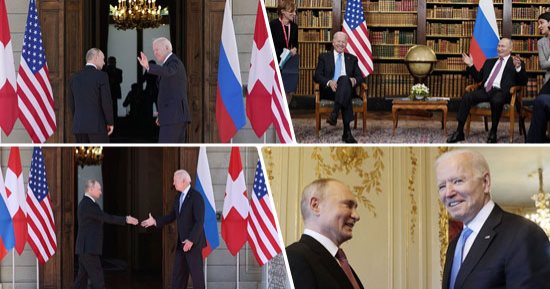
-
Published: 06 September 2022

Some EU countries have worsened fears that the Ukrainian war will further exacerbate the implications for the European continent, after Russian gas supplies to Europe were halted across the Nord Stream 1 line, so there have been renewed voices within the European bloc to call for a return to negotiations and avoid the US's all-time policy of
escalation in the Ukrainian crisis.
Despite the escalation between the Western and Russian sides, Europe, notably Paris and Berlin, returned to talk about the importance of negotiations and continued dialogue with Putin
Over the past months, Germany and France have been exerting sustained pressure on Ukraine's President to return to negotiate, through constant communication with Putin
Despite Germany and France's recent call to return to the negotiating table with Russia, the United States has shown no willingness to calm the crisis, underscoring its desire to extend Ukraine's war and escalate towards Russia.
At the same time, Washington did not respond to any requests from Moscow for negotiations, or warnings about the continued pumping of weapons to Ukrainian forces, as the director of Russia's North American Department of Foreign Affairs, Alexander Darshev, Washington, demanded that Ukrainian President Volodymyr Zelenxi be forced to sit down for negotiation.
Since the beginning of the Ukrainian war, American officials have promoted that the Ukrainian war will become a "long war."
On May 10, US intelligence said Russia was "preparing for a war of attrition," confirming Ukraine's supply of weapons to prepare for a "longer conflict."
The United States topped the list of the countries most supporting Ukraine, and the White House has provided some $6.3 billion in military aid to Ukraine since early this year.
The U.S. Congress approved $40 billion in aid for the coming period.
It should be noted that the trend in Europe is now "taking a strategic distance away from the American agenda, to revisit the aftermath of the war, and perhaps this trend does not have the majority, but over time the European view of the war will change.
Analysts point out that "the United States has a different approach than Europe in the Ukrainian crisis for two reasons, so it avoids negotiation and seeks to keep the war going as long as possible."
The first reason concerns the United States "conviction that Russian President Vladimir Putin's regime would fall into the Ukrainian swamp, as the Soviet Union had previously fallen into the Afghan swamp, so Washington used all political, economic, strategic, military and diplomatic papers to break the Russian military system in Ukraine.
The second reason "relates to the achievement of interests at the expense of Europe, and given the consequences of the war, the American economy becomes the sole beneficiary of the export of gas and oil to the countries of Europe, and the export of grain and weapons to Ukraine and Europe as well, so that the cessation of negotiations becomes a service to the American economy's agenda."
Analysts also noted that "European voices and questions about the possibility of sacrificing the economy and security in exchange for a war that seems to be losing for Europeans, prompting politicians to denounce the sanctions the EU has engaged in with Washington"
